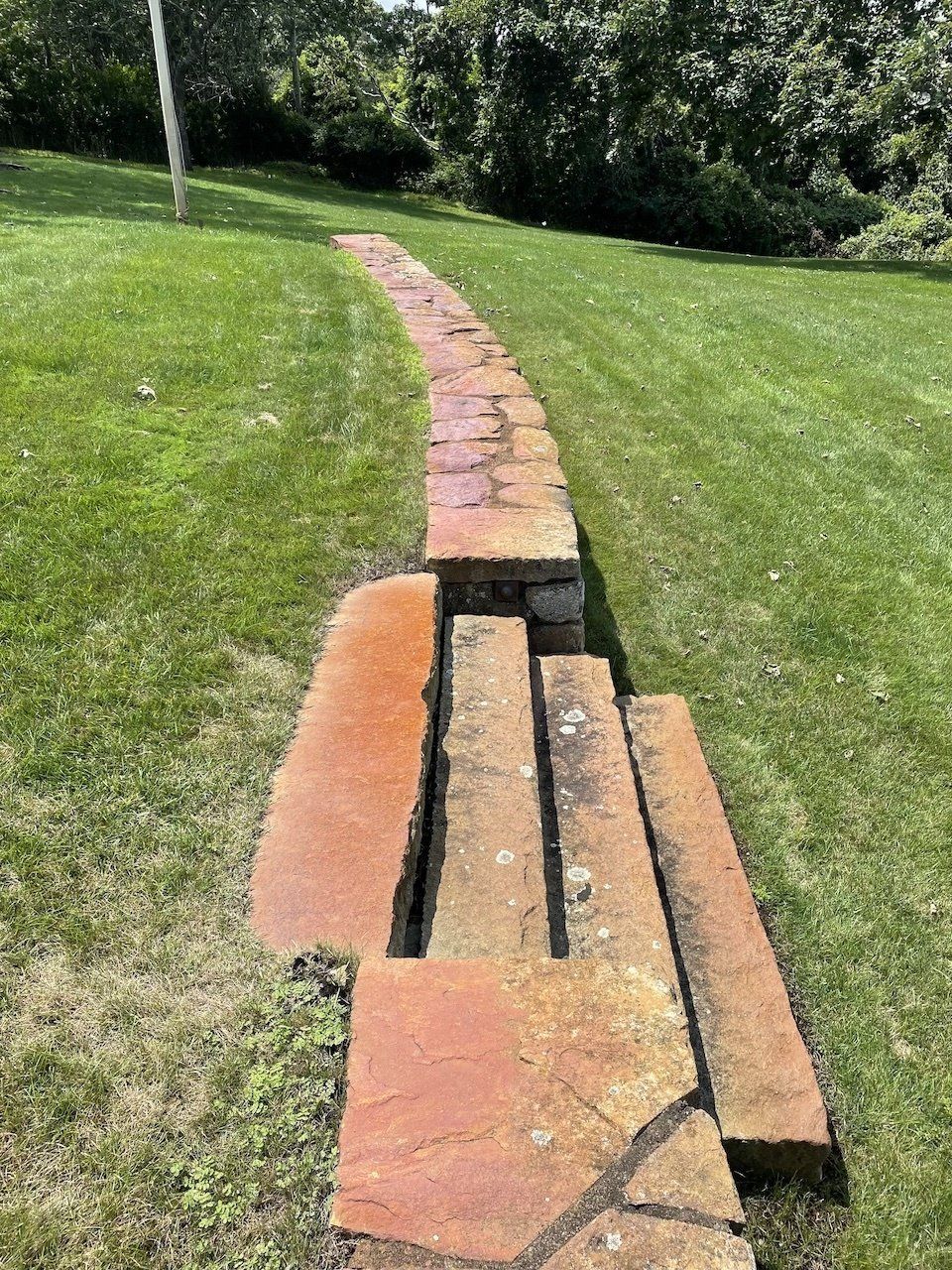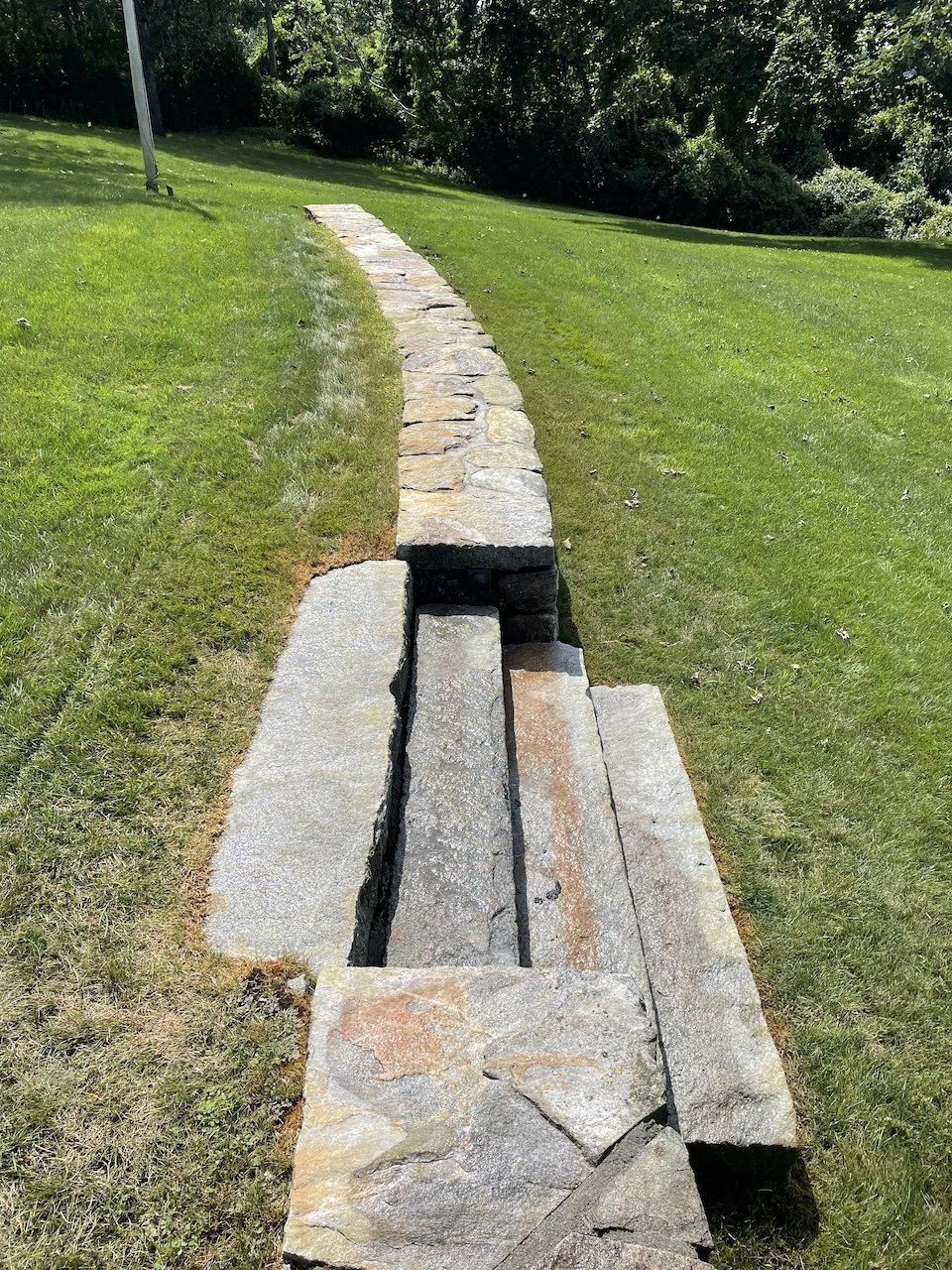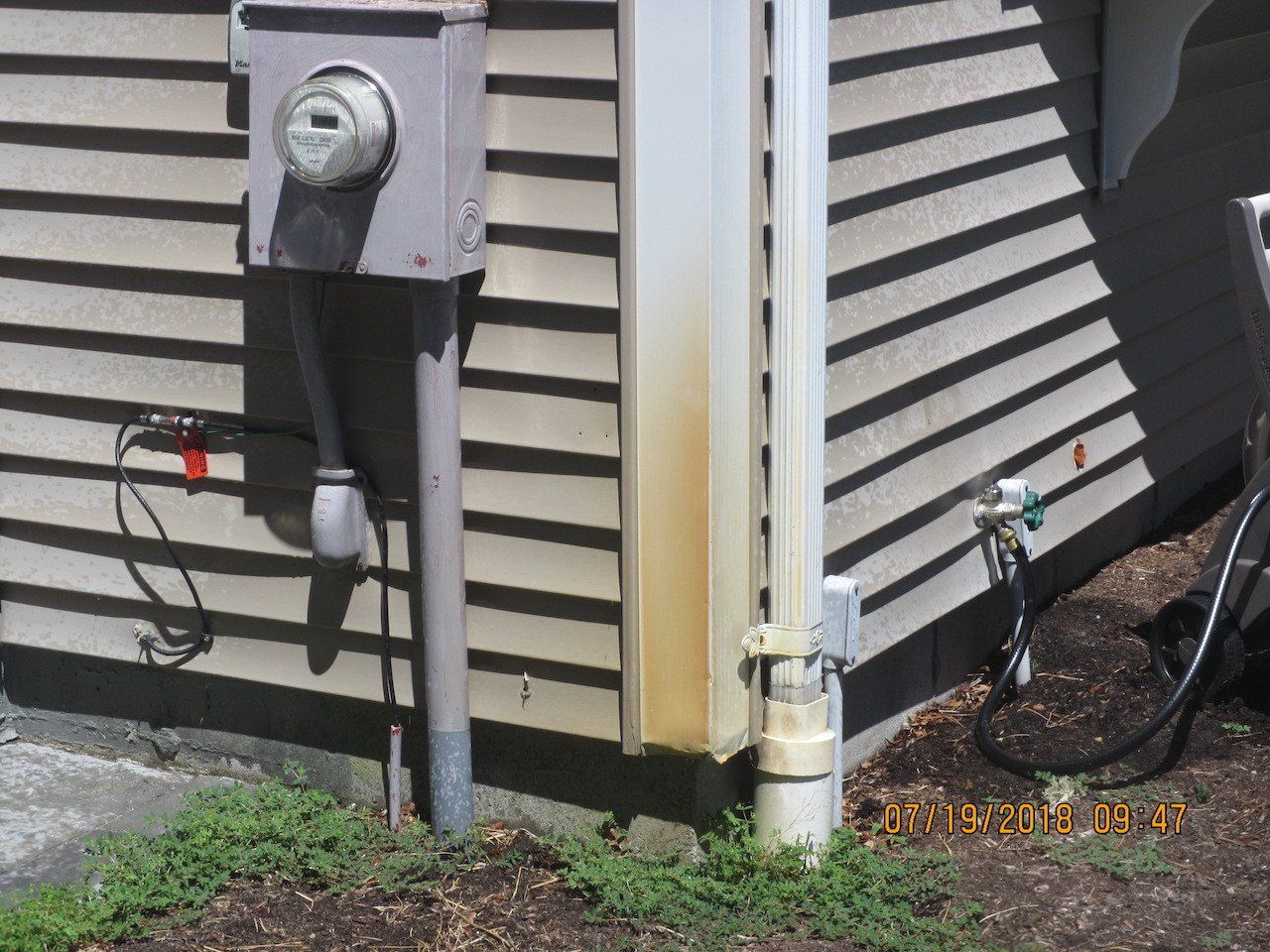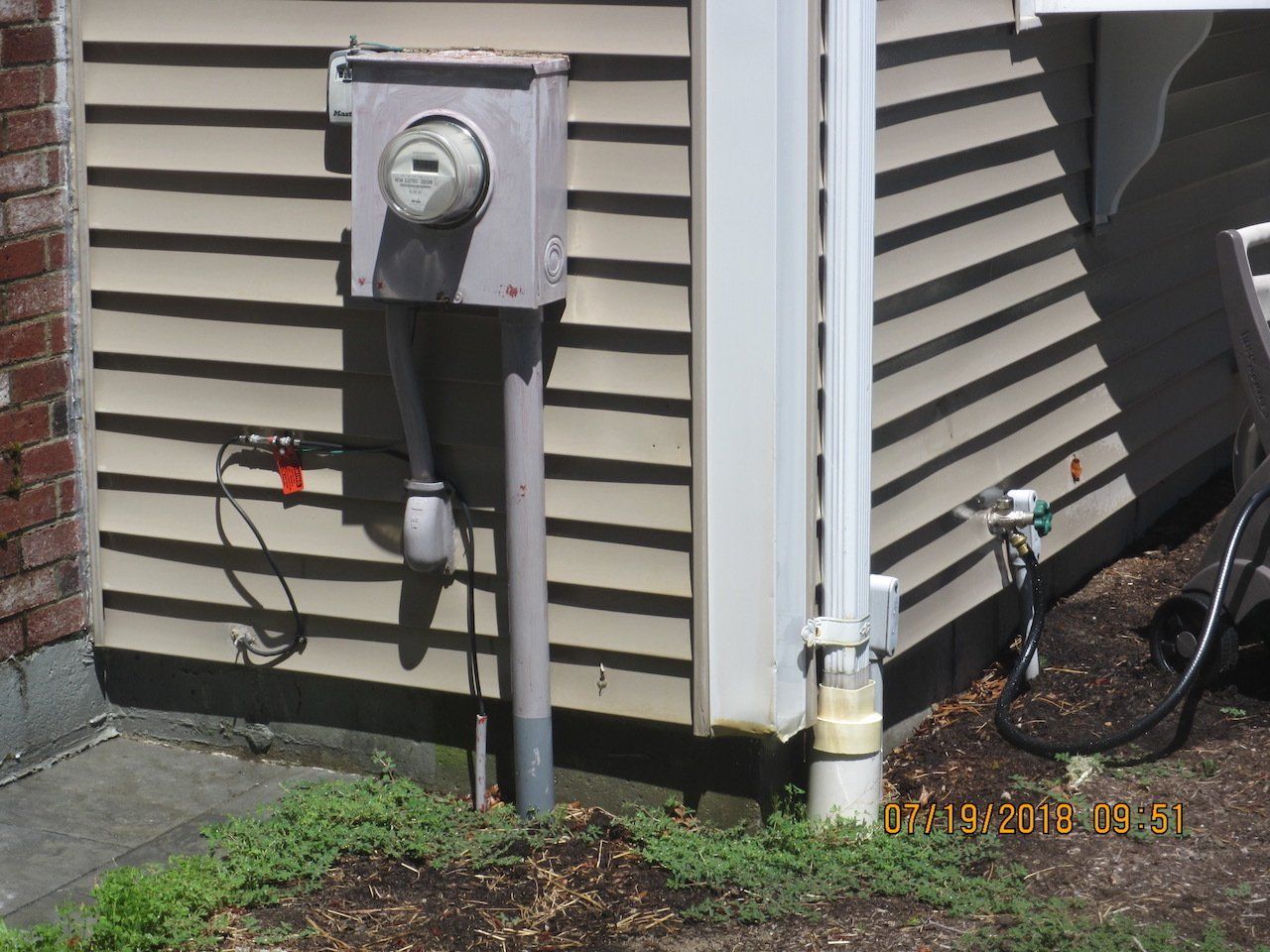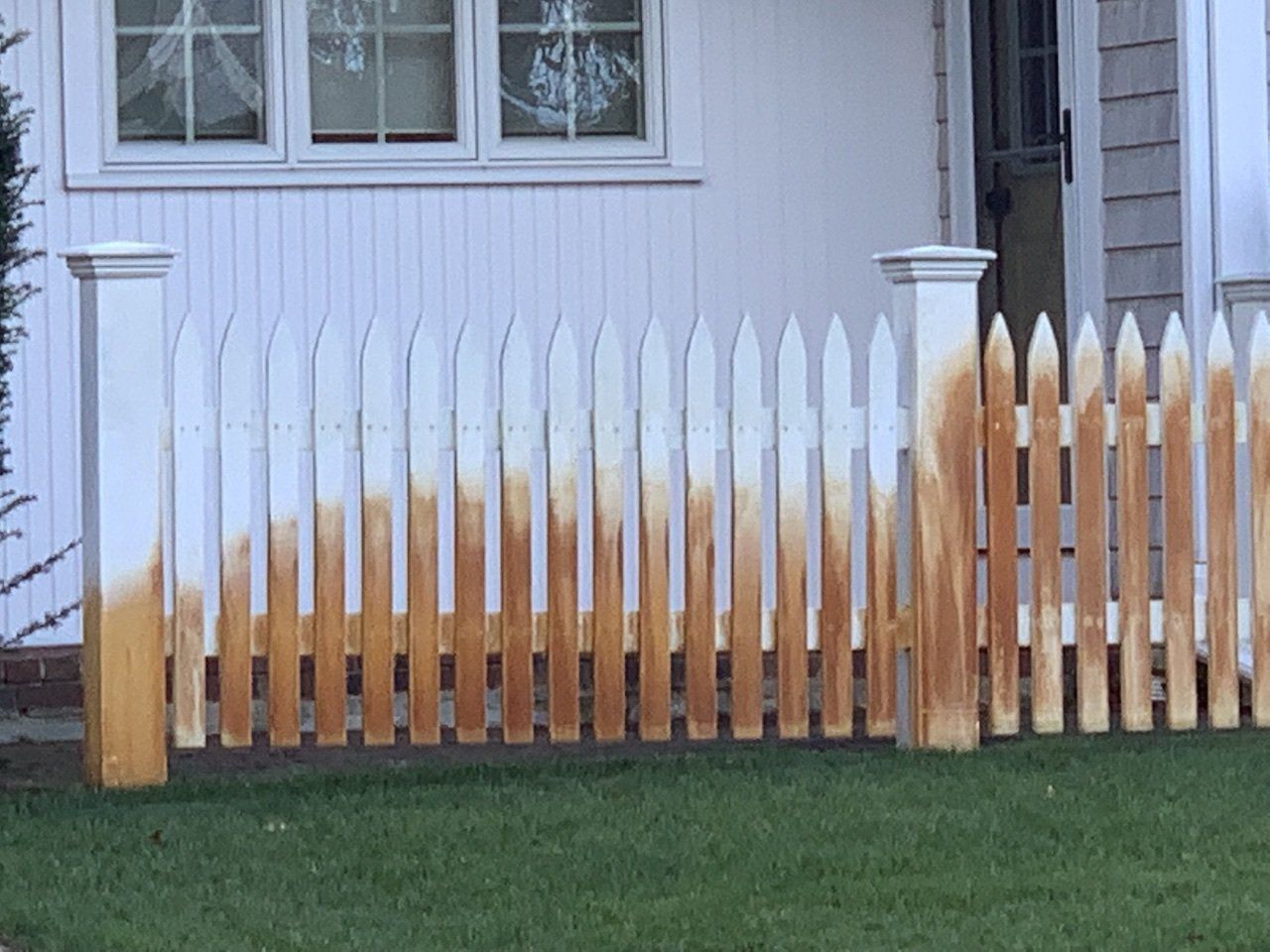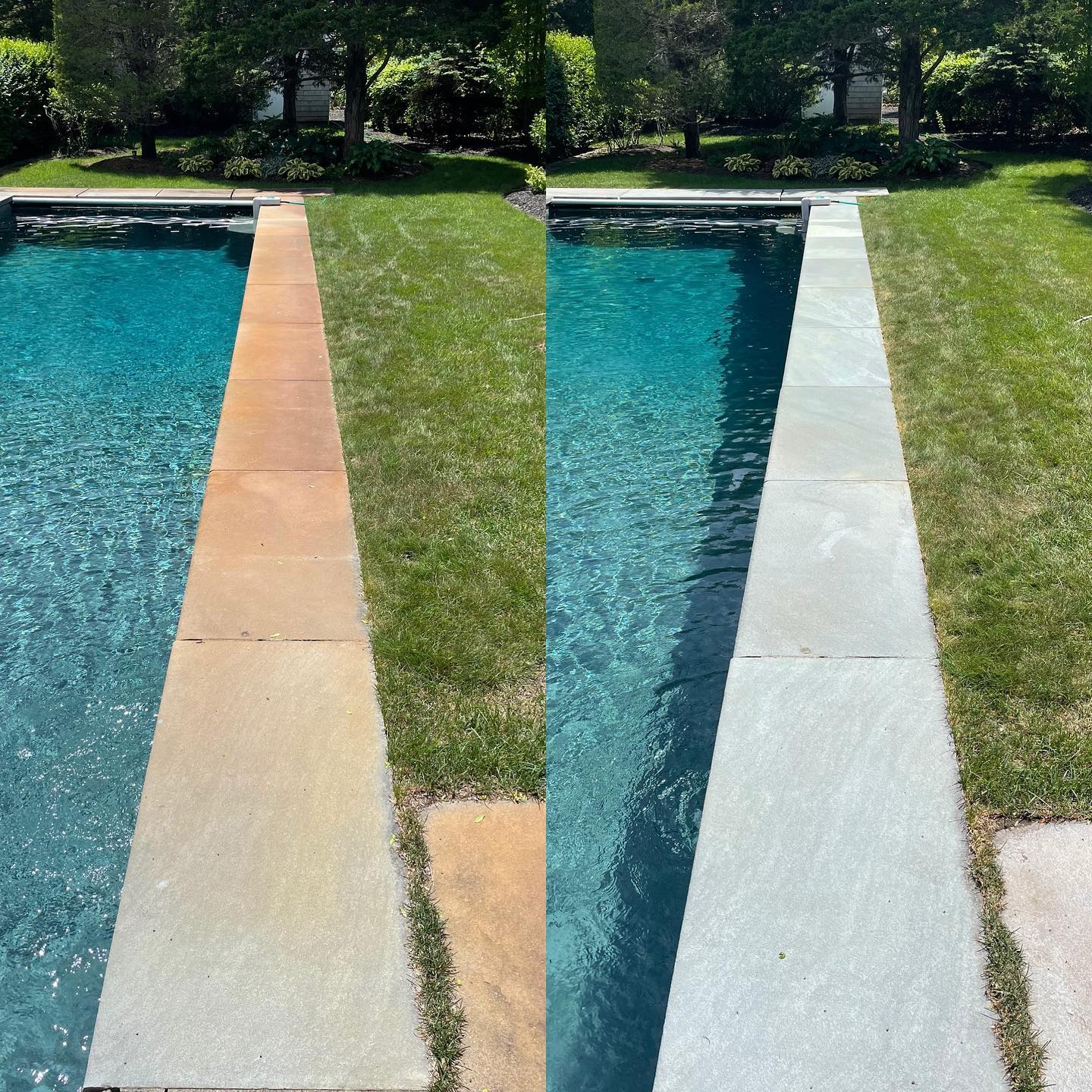Rust Stain Removal
In our salty seaside environment, "rust stains" are a common occurrence.
Typically, these stains are most common on properties with irrigation systems fed from an on-site well. The high iron content in the water causes a reaction with the high levels of salt in the environment and, well,
rusts.
We routinely remove rust stains from fencing, trim, roofs, chimneys, decks, and patios. We have the tools and experience to do this safely and properly.
Give us a call for a friendly consult. We'll let you know what it will take to do what can be done.
How can my PLASTIC fence RUST?
Sometimes, the plastic may be assembled or supported with ordinary (non-stainless) metal screws, which rust over time in our salty seaside environment.
More often, through, rust stains form on a non-metalic surface when water reaching that surface carries water with iron in it. The water (sometimes from groundwater-fed irrigation systems) splashes on the surface, the iron particles rust, and the surface becomes stained.
What's the best time of year to remove rust stains?
We can address rust stains at pretty much any time of year. However, as with all forms of exterior cleaning, it is made more difficult when nearby plants are in "full bloom" because of precautions we need to take to protect delicate blooming plants from hoses, feet, ladders, and the cleaning chemicals themselves. For this reason, later autumn through early springtime is the "ideal" time to address rust stains if sensitive vegetation is immediately nearby.
Do you need to use my house spigot to remove rust stains?
No. Our truck carries plenty of water to do all the rinsing we need for removing rust stains. For this reason, removing rust stains in the "off season" is not a problem.
Can you remove rust stains from stone?
Typically, yes. Here's some examples:
